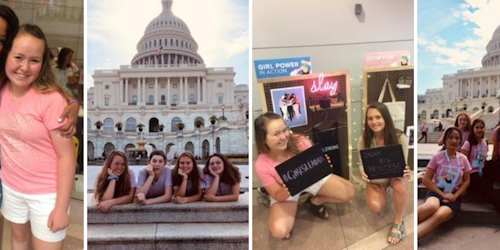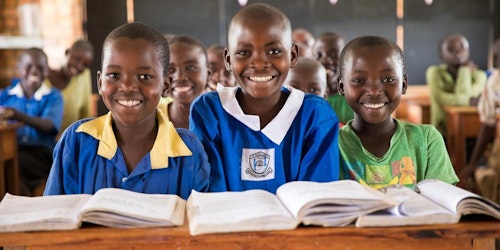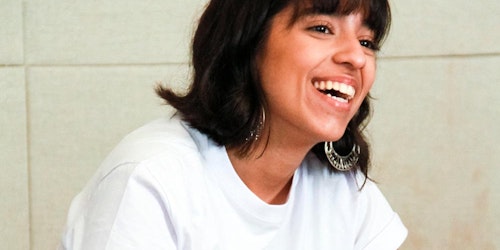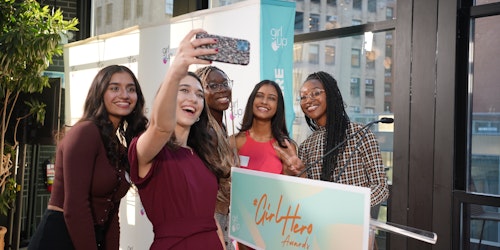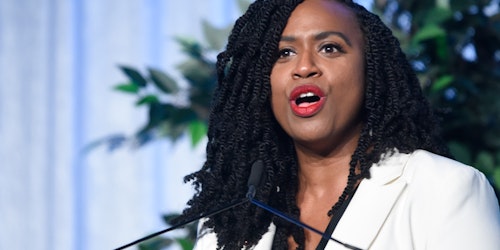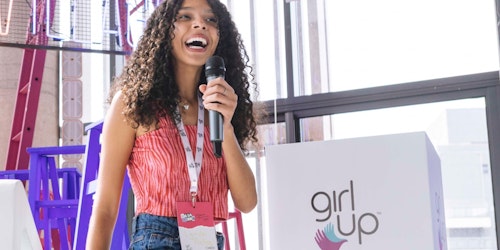Reposted from the UN Foundation blog
I was 5 when the UN’s Fourth World Conference for Women took place in Beijing, where thousands of women and men — civil society activists, diplomats, researchers, and advocates — gathered to negotiate what remains the most progressive global agreement on women’s rights.
I didn’t yet know the tough U.S. negotiator, the passionate young Latvian advocate for family planning, or the two deeply admired leaders for women’s rights who prepared for and participated in that pivotal moment and who are now my esteemed colleagues at the United Nations Foundation.
Nor did I expect that 25 years later we would still be demanding more and better from world governments, which haven’t kept the promises they made in Beijing. As UN Secretary-General António Guterres said recently, “The Beijing Conference was a watershed; a landmark; a turning point. … But we have not fulfilled the ambitious vision of the Beijing Declaration.”
Why? The equal rights of women and men are enshrined in the UN Charter, penned 75 years ago. The benefits of gender equality, for everyone, everywhere, have been extensively and repeatedly documented — in fact, more than 100 countries said as much at a significant meeting at the UN about the Beijing anniversary.
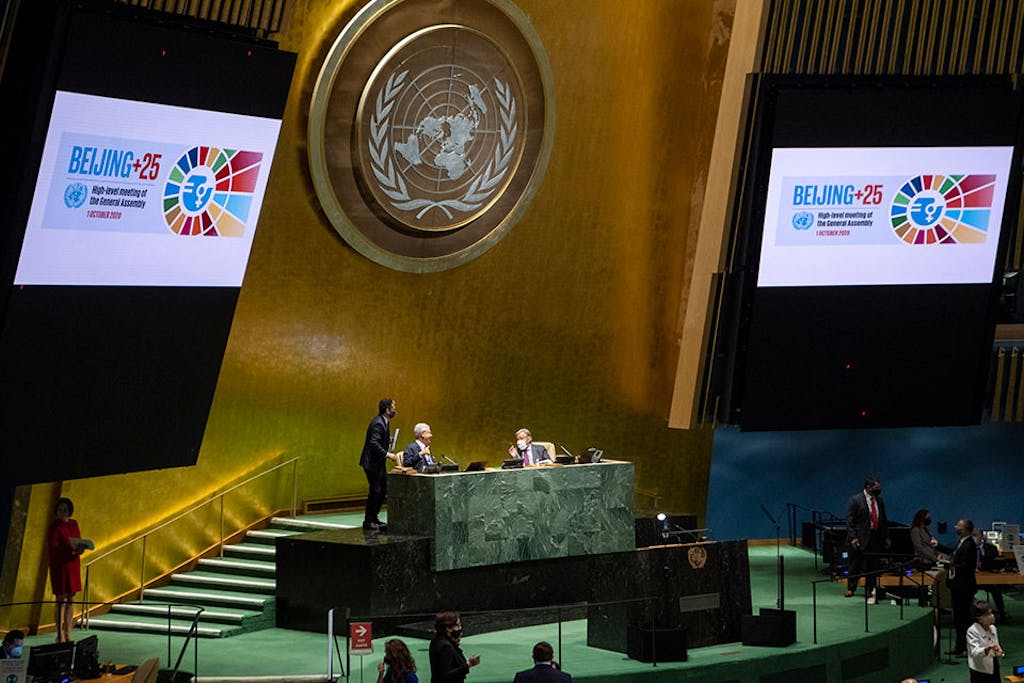
The world gets another shot next year at making good on what it committed to in 1995 and on achieving an equitable world for all. UN Women, with the governments of Mexico and France, will host two Generation Equality Forums in 2021, with the aim of putting forth an action-oriented agenda for gender equality. Generation Equality needs to be history-making, galvanizing, and truly transformative so we don’t lose another generation’s worth of progress. A tall order.
To understand what happened then and where we are now, I asked my colleagues what they recall from the Beijing era of the global women’s movement and what they want now. I also asked several of our current and former Girl Up Teen Advisors, who are the present and future of collective feminist leadership, what they want next. This is what I learned.
CAREFUL NEGOTIATIONS AND CONFRONTING THE OPPOSITION
Melinda Kimble served as a key negotiator for the U.S. government at the Beijing conference and at the human rights and development conferences that preceded it in Vienna and Cairo.
She remembers the task forces, working groups, and countless individuals that began negotiating language as early as 1993. Important ideas about women’s rights and states’ obligations traveled from conference to conference, gathering strength. Opposition groups did, too.
The International Conference on Population and Development held in Cairo in 1994 “was a leap forward and a seminal shift,” Kimble remembers, pushing forward the agenda for sexual and reproductive health and rights and laying the groundwork for consensus at Beijing a year later. Unlike today, the U.S. was then pushing for more progressive language and was carefully negotiating with other countries in an effort to hold together a coalition of the willing. As part of that effort, Kimble helped to pull together a negotiating bloc that was so effective it was applauded in the plenary negotiations.
The decisions made in Beijing had lasting and far-reaching effects, she says. National governments returned home and enacted violence against women laws as part of Beijing and increased funding for women and girls to prevent and treat HIV, a key topic of discussion at the conference. Looking back, Kimble considers the Beijing Platform for Action to be a breakthrough in its insistence on a holistic approach for gender equality. She also remembers then-first lady Hillary Clinton making her famous speech declaring that “women’s rights are human rights” to a crowd on its feet and in the aisles.
However, Kimble notes, “Implementing it has been a fight. It is phenomenal to think how long ago Beijing was, and how long it takes to move the needle on this. It is distressing to think that the Beijing language is the best we can do. But the other side of the coin is that it gives us a baseline to build on, and that is what is really important about Beijing.”
Ilze Melngailis was early in her career when she attended the Beijing conference as part of the Latvian government delegation. She was only 25 and had just founded the Latvian Association for Family Planning and Sexual Health. “When the Beijing meeting was announced, I knew it was something big,” she said. “I got to witness the UN in action on an issue I was passionate about — reproductive health and family planning. I experienced firsthand the beautiful democracy of the UN and how every country had an equal voice in arguing what the global declaration needed to say.”
She remembers the diversity of women and the range of perspectives on gender equality and “countless hours of fighting over words like ‘and’ and ‘or’ — little words that made a big difference in the final negotiations.” What she didn’t expect was seeing what she believed to be fundamental rights up for debate. “I remember the craziness of having questions about women’s — and my own — rights decided by all these people.”
THE BEIJING BACKLASH
Mayra Buvinic was president of the International Center for Research on Women (ICRW) when she boarded the plane to Beijing. A contributor to the efforts of the UN’s International Women’s Year (1975) and previous UN World Conferences on Women in Copenhagen (1980) and Nairobi (1985), she noticed more enthusiasm, more visibility, more financial support, and a stronger community of global grassroots advocates in Beijing.
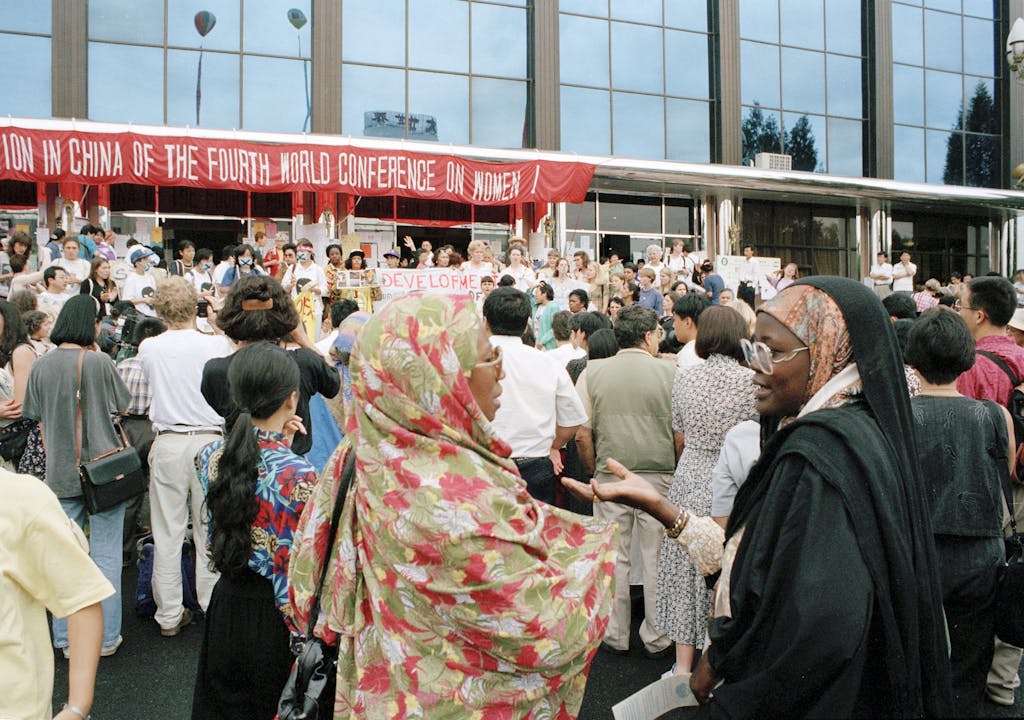
Global advocates gathered in Huairou, a suburb of Beijing, where they coped with rain, mud, and transport issues, as well as surveillance by the Chinese government, which had stashed the advocates far from the conference center in hopes of limiting their influence and action. Still, Buvinic remembers the 1995 conference as impressive and exciting. “It was a big moment for the women’s movement. All this rights language that had been pushed for earlier — it got recognized and formalized at Beijing.”
Buvinic adds that “it was all wonderful and then it all went very quiet, and that is the most interesting story. There was a backlash globally. There was an economic recession, fundamentalism, donors cut back on gender equality, and everyone retreated, but it tells you a story of what Beijing did not do: There was a lot of rhetoric but not much follow-up. That is what needs to be understood now and guarded against. These conferences are motivational; they help crystallize rights language on a global scale; they summarize — but there should be a strong follow-through.”
Working alongside Buvinic, Geeta Rao Gupta was vice president of ICRW at the time and deeply involved in Beijing preparation. At the last minute, a family health issue kept her in Washington, D.C. “For me,” Gupta recalls, Beijing “was the recognition of the work we had been doing in the shadows, on the margins of what was considered international development work. For the first time, there was international recognition that this was an important area that needed government commitments, to address barriers of women’s rights and access — to acknowledge and recognize women’s rights. Beijing was a high point where we hoped we would get recognition.”
Gupta also emphasizes the key roles of funders in supporting women’s organizations. Five big foundations had a joint strategy to deliver critical funding for women’s rights organizations.
“As soon as the Platform for Action was supported by national governments, this funding dried up. We watched in horror as many grassroots women’s organizations had to close their doors,” Gupta laments. To implement this agenda, she argues, we need a strong and organized civil society that holds governments accountable to their commitments. Without funding, for example, there has been a loss of momentum and a backlash against reproductive rights. “The civil society presence that could have withstood this backlash was greatly weakened,” she said.
THE NEW GENERATION PUSHING FOR PROGRESS
What does Gen Z know about Beijing? The youth advocates I spoke to — who are on the frontlines of current social justice movements — have never heard of the 1995 Beijing conference or identified it as central to our global feminist histories. What does that mean for our collective striving? What do they want to see next year as the world prepares to gather in Mexico and France?
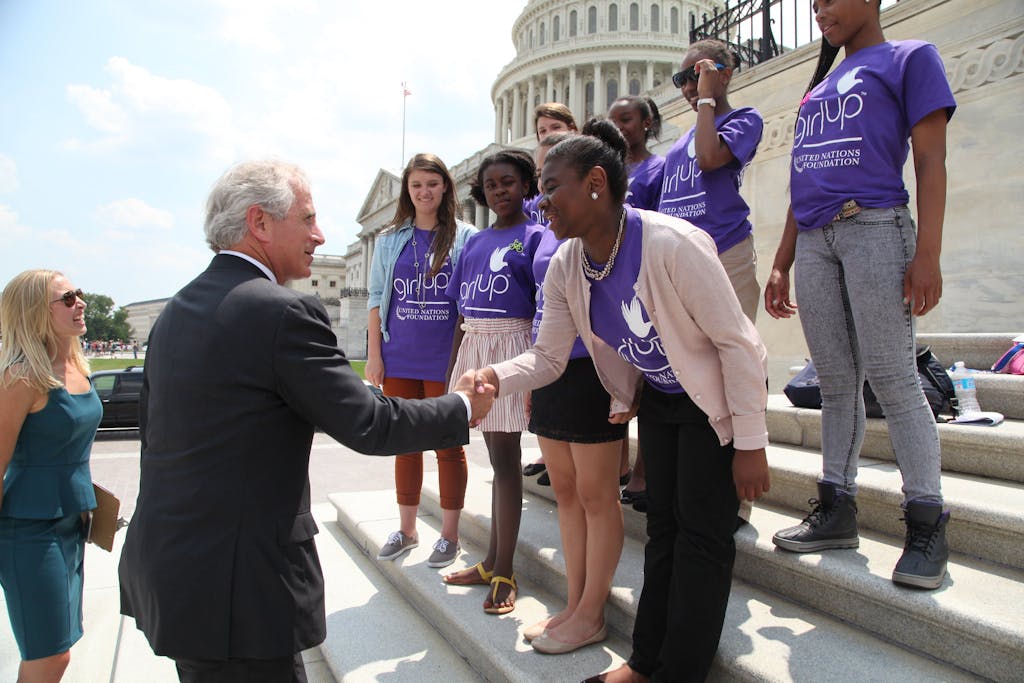
Leena Abdelmoity is a college student with a passion for refugee-related issues, stemming from her own background. Abdelmoity’s particular concern for women and girls living in refugee camps led her to establish a nonprofit, Light for Refugees Foundation, to provide solar lights in refugee camps, to prevent sexual harassment, and to allow for nighttime studying, with its first camp in Greece. Abdelmoity says Generation Equality must “recognize the differences of women and girls — their locations, the different crises they face … women of color and marginalized backgrounds face unique challenges. Being a woman has many components, whether it is race, personal experience. To generalize women to a page is not doing justice to the diversity of women.”
Emily Lin, a high school senior in Taiwan, was motivated by the prevalent challenges of sexual harassment, domestic violence, and public harassment — significant issues in Asia — to start a Girl Up Club in 2017. “Gender equality is a very big topic with many subtopics,” Lin says, noting the “stigmatization of groups, stereotypes of Asian women, the discrimination against the LGBTQ+ community. Different countries will have different topics to focus on. We need to come together to work for the same movement.”
Vanessa Louis-Jean is a racial and gender justice activist from South Carolina. Growing up in a rural town, her journey toward feminist activism started in her high school freshman year. She began exploring social injustices and the slow pace of change and vowed to be an agent of change herself. Her activism is fiercely intersectional and focused on racial justice and feminism. The Girl Up Club that she founded has fostered a safe space for discussions on colorism, unrealistic beauty standards, and much more.
For Louis-Jean, Generation Equality needs to be about a fundamental shift in power. “The power of the people will make a drastic difference instead of decision-makers,” she said. “People should take the mic back. We need to be able to amplify our voices. Give voice back to the voiceless.”
The energy and ambitions of this emerging generation, and the lessons of Beijing gleaned from those who were there, give us hope for the path ahead and guidance to heed along the way toward Generation Equality in 2021.
Gupta hopes for a re-energized civil society movement and that “young women and young men will organize — differently from the way we did when we were younger. They will find commonality across different injustices in a way we didn’t do as well in the past and use social media to affect change. They are fighting against inequalities of different kinds within a feminist agenda — and I hope this becomes the new women’s movement.” She adds that she wants to see women in leadership positions at all levels. “We should demand leadership, to hold positions of power ourselves.”
Melngailis says, “It is time to set a new bar of genuine equality and hold everyone accountable to it.” Meanwhile, Buvinic stresses the importance of what happens after Generation Equality. “You have to make sure with Generation Equality that you establish the mechanisms that will allow this to be sustained over time, including accountability and implementation,” she said. “Now that it’s a more complicated world, it is doubly important to do that.”
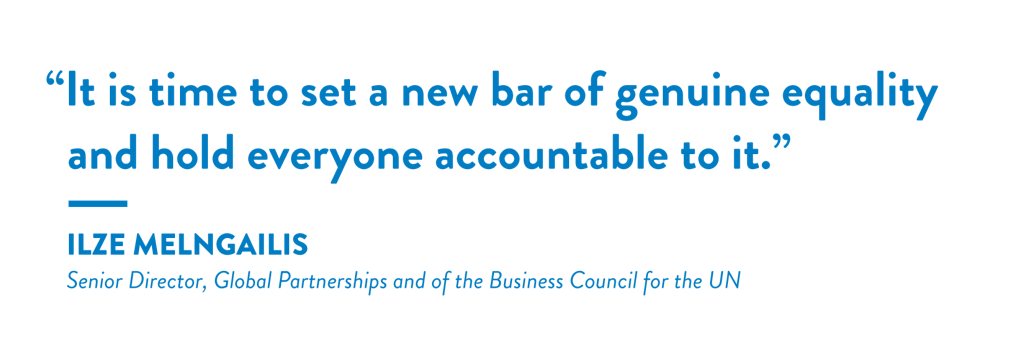
Next year we must build on the hard work of the many women and men who came before us — an extraordinary lineage of activists and advocates, practitioners and researchers, leaders and allies — and put the voices of our youngest advocates out front and center, to demand transformative change, and lasting progress. In 25 years, we want the world to feel that we fulfilled the “ambitious vision” of gender equality for all of us — and that includes the 5-year-old girls who are watching us now and will be watching us then.
